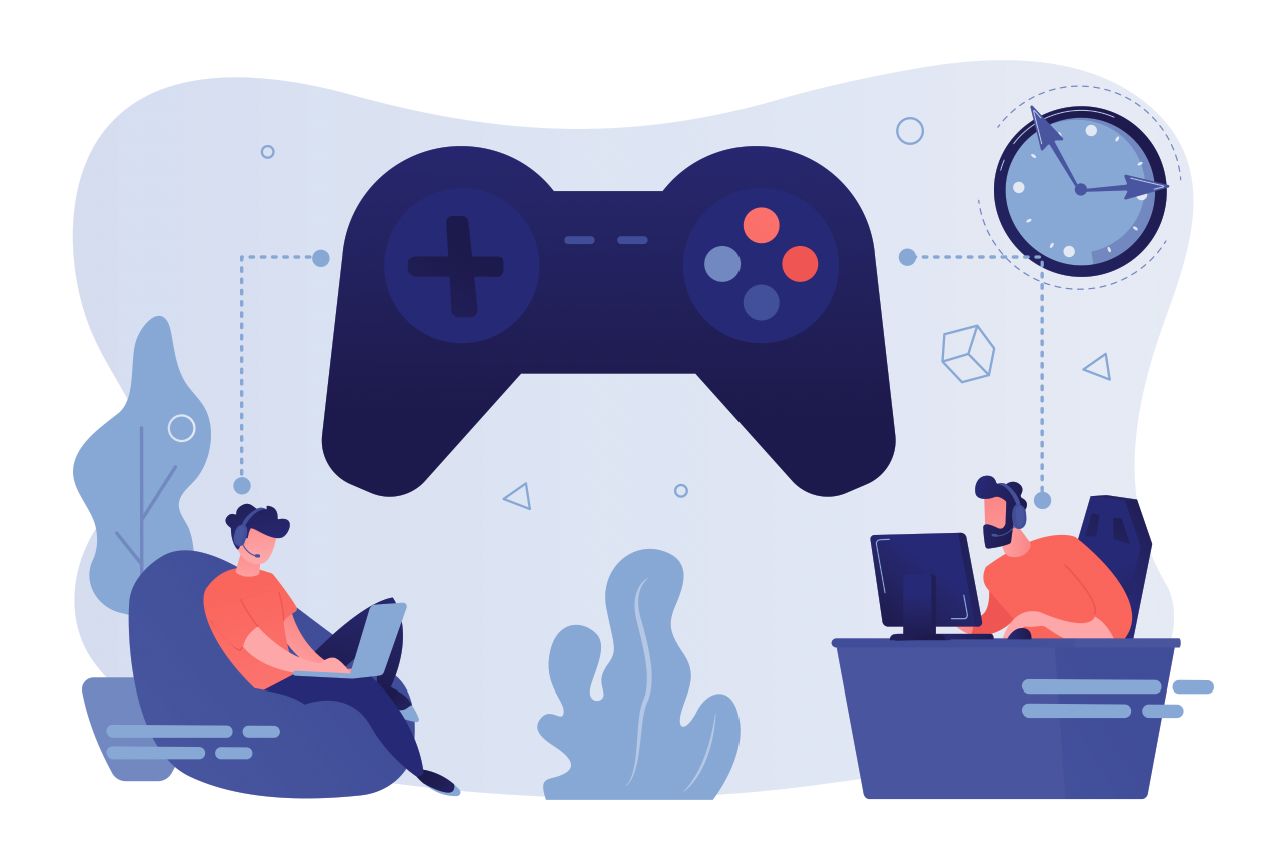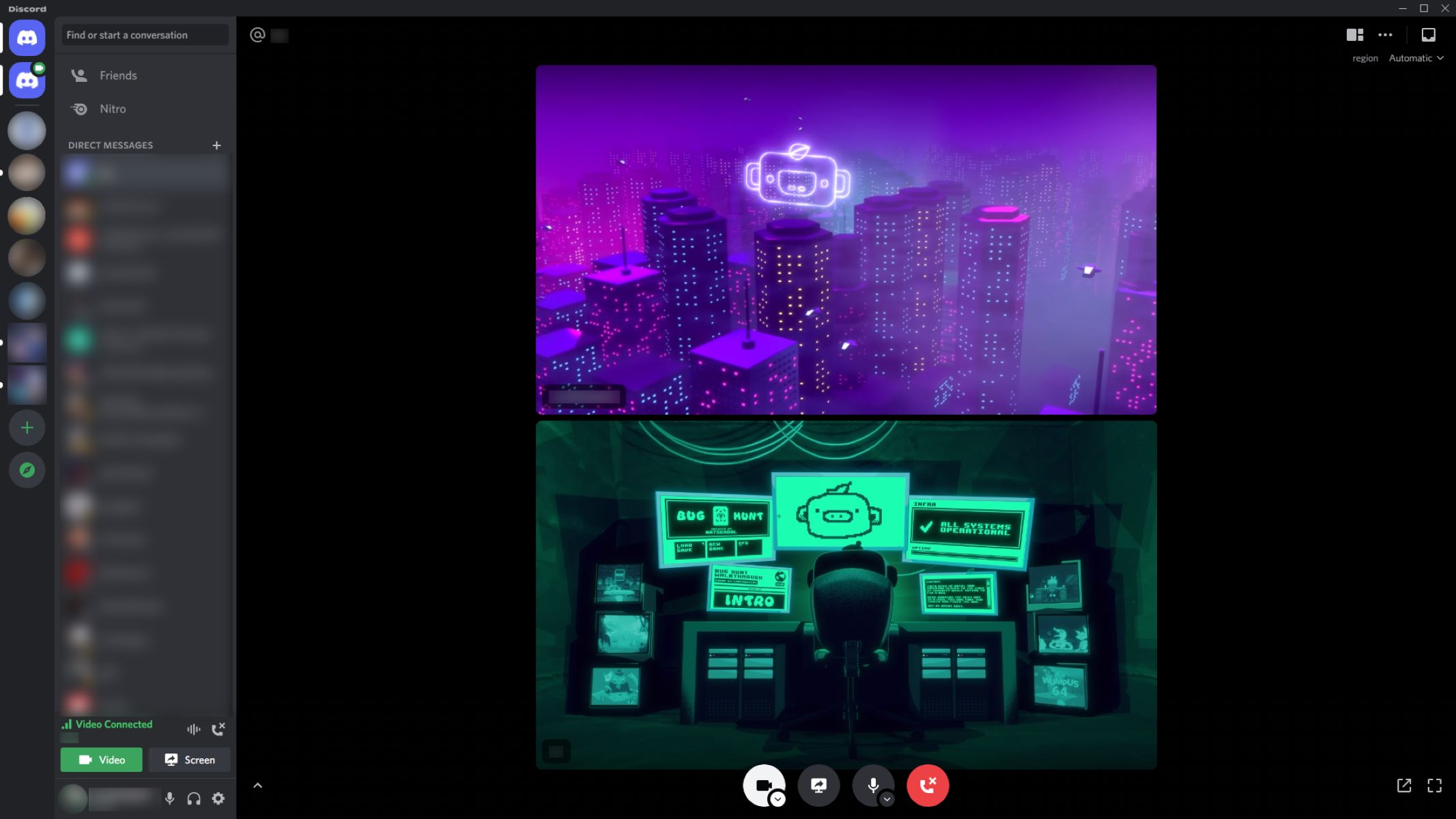IP Address
The IP address, or Internet Protocol address, plays a significant role in how people find your address when online gaming. Every device connected to the internet is assigned a unique IP address, which serves as its digital identifier. When you participate in online gaming, your IP address is visible to other players and can potentially be used to locate you.
IP addresses are required for devices to communicate with each other over the internet. They consist of a series of numerical values separated by periods, such as 192.168.1.1. This address can provide valuable information about your location when mapped to physical coordinates, although it may not pinpoint your exact address.
Through IP address geolocation services, it is possible for other players or individuals to get an idea of where you are located. This can be achieved by determining the general region or city associated with your IP address. While this information is typically not precise enough to identify your specific address, it presents a potential privacy concern.
It’s important to note that IP address geolocation is not always accurate or reliable. There are several factors that can affect the accuracy of the results, including proxy servers, virtual private networks (VPNs), and internet service providers that use dynamic IP addressing.
To protect your privacy and mitigate the risk of being located through your IP address, it is advisable to use a VPN or proxy server. These services can mask your real IP address, making it more difficult for others to determine your actual location.
Additionally, it’s crucial to be cautious when sharing your IP address with others while gaming. Avoid providing it to individuals you don’t trust or those who have malicious intentions. By keeping your IP address private, you can minimize the chance of unwanted attention or potential invasions of your online privacy.
Server Logs
Another way people can find your address when online gaming is through server logs. When you connect to a gaming server, your device’s information, including your IP address, is logged in the server’s records. These server logs can be accessed and potentially used to identify and locate players.
Server logs are essential for maintaining the functionality and security of online gaming servers. They track various details, such as IP addresses, timestamps, and activities performed during a gaming session. While server logs primarily serve administrative purposes, they can also be used to investigate suspicious or inappropriate behavior.
In some cases, unauthorized individuals or hackers may gain access to server logs, either through security breaches or by exploiting vulnerabilities. This can pose a significant risk to players’ privacy, as attackers can extract personal information, including IP addresses, and potentially use it for malicious purposes.
Game developers and server administrators are responsible for implementing security measures to protect server logs from unauthorized access. These measures may include encryption, access control, and regular monitoring for suspicious activities. It is crucial for players to choose reputable and secure gaming platforms that prioritize the protection of user data.
However, despite these precautions, it is still possible for determined individuals to obtain server logs and extract information. This highlights the importance of being cautious and aware of the potential risks associated with online gaming. Players should be mindful of sharing personal or sensitive information while playing, as it could end up in server logs or fall into the wrong hands.
Additionally, regularly reviewing and understanding the privacy policies of the gaming platforms you use can provide insights into how they handle and store server logs. It is advisable to choose platforms that have clear and transparent data protection practices, as this can help mitigate the risk of your information being compromised.
By understanding the potential risks and taking appropriate precautions, you can minimize the chances of your address being discovered through server logs while enjoying online gaming.
In-Game Voice Chat
In online gaming, communication is key, and many games offer in-game voice chat features that allow players to communicate with each other in real-time. While convenient for coordinating strategies and enhancing the gaming experience, in-game voice chat can also expose your address to other players.
When using in-game voice chat, your IP address is often shared with other players in the voice channel. This sharing of IP addresses occurs because voice chat utilizes peer-to-peer connections, where players’ devices directly communicate with each other rather than going through a central server.
Unfortunately, if someone in the voice chat has malicious intent or the know-how, they could potentially intercept your IP address and use it to locate you. This is a serious privacy concern that players should be aware of and take precautions to mitigate.
One way to protect your address while using in-game voice chat is to enable voice chat through a proxy or virtual private network (VPN). These services can mask your IP address, making it more difficult for others to track your location.
Additionally, it’s crucial to exercise caution when interacting with other players in voice chat. Avoid sharing personal or identifiable information during conversations, as this can potentially be used to locate or target you. It’s essential to remember that not all players may have good intentions, and protecting your privacy should be a priority.
Some games may also offer the option to disable or limit voice chat functionality. If you’re concerned about your address being exposed or prefer not to engage in voice chat, explore the game settings and see if there are options to disable or restrict communication channels.
It’s important for game developers to prioritize the security and privacy of players when implementing in-game voice chat features. Encryption and secure communication protocols can help safeguard players’ IP addresses from being exposed to malicious individuals.
By being aware of the potential risks and taking necessary precautions, such as using proxies or VPNs and being cautious with personal information, you can enjoy in-game voice chat while minimizing the possibility of your address being discovered by others.
Game Lobby Information
When playing online games, one of the common ways people can find your address is through game lobby information. Game lobbies serve as hubs where players can join, interact, and prepare for matches. However, the information displayed in these lobbies, such as usernames, profile pictures, and even location details, can potentially reveal your address.
Many online gaming platforms allow players to customize their profiles and provide personal information such as location or age. While these details may seem harmless at first, they can be utilized by individuals with ill intentions to gather information about you.
It’s important to be mindful of the information you choose to share in your game lobby profile. Consider the potential risks associated with revealing personal details, such as your location. If possible, only provide minimal and necessary information, or use a pseudonym instead of your real name.
Another way your address can be exposed in game lobbies is through voice or text chat interactions. Exercise caution when engaging with other players and avoid sharing sensitive information that could be used to track or locate you.
Game developers have a responsibility to prioritize the privacy and security of their players. They should implement measures to prevent the unauthorized disclosure of personal information in game lobbies. This can include features that allow players to control the visibility of their profiles or to limit the amount of information displayed to others.
As a player, it’s crucial to regularly review and adjust your privacy settings within the game. Take the time to understand the available options and customize them to your comfort level. This can help you maintain a balance between enjoying the social aspects of the game and protecting your personal information.
Furthermore, always be cautious of third-party applications or websites that may access game lobby data. Some external platforms may scrape information from game lobbies, including usernames or profile pictures, which could potentially lead to the exposure of your address. Be selective in granting permissions and ensure that you trust the sources you share your information with.
By being mindful of the information you provide in game lobbies, adjusting privacy settings to your preference, and being cautious of third-party applications, you can reduce the chances of your address being found through game lobby information in online gaming.
Network Vulnerability Scans
Network vulnerability scans are another method through which people can potentially find your address when online gaming. These scans involve searching for vulnerabilities and weaknesses in your network infrastructure, including your IP address, router, and other connected devices.
Attackers can use various tools and techniques to scan networks and identify potential entry points. When vulnerabilities are discovered, they can exploit them to gain unauthorized access to your network and potentially gather information about your address.
It is crucial to ensure that your network is secure and protected from potential vulnerabilities. Here are some steps you can take to minimize the risk:
- Regularly update and patch your network devices, including your router firmware. Manufacturers often release updates to fix security flaws and improve overall protection.
- Change the default login credentials for your router and other network devices. Use strong, unique passwords that are not easily guessable.
- Enable strong encryption, such as WPA2 or WPA3, for your wireless network to prevent unauthorized access.
- Regularly scan your network for potential vulnerabilities using trusted security software or online scanning tools.
- Consider using a firewall to monitor and control incoming and outgoing network traffic.
By implementing these security measures, you can significantly reduce the chances of your address being discovered through network vulnerability scans. Additionally, it is crucial to stay informed about the latest security best practices and update your defenses accordingly.
Game developers also play a role in protecting their players from network vulnerability scans. They should prioritize the security of their online gaming infrastructure and employ measures such as secure coding practices, regular security audits, and secure communication protocols.
Lastly, it is essential to educate yourself about potential network threats and be cautious when connecting to unfamiliar networks or accessing gaming services from public Wi-Fi hotspots. These networks may not have adequate security measures in place, increasing the risk of your address being exposed to malicious actors.
By taking proactive steps to secure your network and being vigilant about potential vulnerabilities, you can reduce the chances of your address being found through network vulnerability scans in online gaming.
Social Engineering
Social engineering is a manipulative technique that exploits human psychology to gain access to personal information, including your address, during online gaming. Attackers may use various tactics to deceive and trick individuals into revealing sensitive details willingly.
One common form of social engineering in online gaming is phishing. Attackers may send fake emails or messages that appear to be from a trusted gaming platform, requesting personal information or login credentials. If unsuspecting players fall for these scams, their address and other sensitive data could be compromised.
Another tactic is impersonation, where attackers pretend to be someone they’re not, such as a game developer or administrator. They may approach players and ask for personal information, claiming it’s necessary for account verification or game-related purposes.
It’s important to remember that legitimate game developers and administrators will never ask for your personal information through unsolicited messages or in-game chats. Be vigilant and skeptical of any requests for personal details and always verify the source before sharing any information.
Protecting yourself from social engineering attacks requires caution and awareness. Here are some tips to help you stay safe:
- Be cautious about the information you share online and in-game chats. Avoid revealing personal details, such as your address, to strangers or unverified individuals.
- Regularly review the privacy settings of your gaming accounts and adjust them to your comfort level.
- Enable two-factor authentication whenever possible to add an extra layer of security to your accounts.
- Keep your gaming platform and devices updated with the latest security patches and software updates.
- Educate yourself about common social engineering tactics, such as phishing scams, and learn how to identify and avoid them.
Additionally, it’s important to report any suspicious or potentially malicious activities to the game developers or administrators. By doing so, you can help protect yourself and other players from falling victim to social engineering attacks.
Game developers also have a responsibility to educate their player base about the risks of social engineering and provide resources for reporting and addressing such incidents. They should implement measures to detect and prevent social engineering attempts within their gaming platforms.
By staying vigilant, practicing good security habits, and being cautious of social engineering tactics, you can reduce the likelihood of falling victim to such attacks and protect your address and other personal information while gaming online.
DDoS Attacks
DDoS (Distributed Denial of Service) attacks are a prevalent threat in the online gaming world. These attacks aim to overwhelm a gaming server or network with an excessive amount of traffic, rendering it inaccessible to players. While the primary goal of a DDoS attack is to disrupt gameplay, it can also indirectly expose your address.
In a DDoS attack, the attacker typically uses a network of compromised computers or devices, known as a botnet, to flood the target server with traffic. This flood of incoming data can lead to network congestion and a significant decrease in performance, making it difficult for legitimate players to access the gaming server.
While DDoS attacks primarily focus on disrupting gameplay, in some cases, attackers may also attempt to gain personal information, including your address. The chaos caused by a DDoS attack can create opportunities for attackers to infiltrate systems or trick players into revealing sensitive details under the guise of resolving the issue.
To protect yourself from the potential risks associated with DDoS attacks, here are some recommended actions:
- Use a reputable gaming platform that implements DDoS mitigation strategies and has robust security measures in place.
- Consider using a VPN to mask your IP address and protect your network connection from potential attacks.
- Stay informed about potential DDoS attacks targeting popular games or gaming platforms.
- Be cautious of unsolicited messages or emails related to DDoS attacks. Attackers may try to take advantage of the situation to trick players into revealing personal information.
- Report any suspicious or unusual activities to game developers or administrators promptly.
- Follow official social media accounts or forums of the gaming platform to receive updates and alerts regarding potential DDoS attacks.
Game developers also have a responsibility to protect their players from DDoS attacks by implementing proper network infrastructure and security measures. This includes regularly monitoring network traffic, implementing DDoS detection mechanisms, and having a comprehensive incident response plan in place.
By staying informed, taking precautions, and choosing reputable gaming platforms, you can minimize the impact of DDoS attacks and reduce the chances of your address being exposed during online gaming.
Third-Party Websites and Forums
When it comes to online gaming, players often rely on third-party websites and forums for various purposes, such as game guides, community discussions, or matchmaking services. While these platforms can enhance the gaming experience, they can also pose potential risks to your address and personal information.
Third-party websites and forums may require users to create accounts and provide personal information, including email addresses, usernames, and even location details. If these platforms have weak security measures or fall victim to data breaches, your information, including your address, could be exposed.
It’s important to be cautious when sharing personal information on third-party websites and forums. Consider the following tips to protect your address:
- Be selective when choosing which third-party platforms to engage with. Stick to reputable and trustworthy websites that prioritize user privacy and have secure practices in place.
- Review the privacy policies and terms of service of these platforms. Understand how your information will be used, stored, and shared before creating an account.
- Avoid sharing unnecessary personal details, such as your full address or phone number, unless absolutely necessary and with trusted entities.
- Consider using aliases or pseudonyms instead of your real name on these platforms to protect your identity.
- Regularly update your account passwords on these platforms to minimize the risk of unauthorized access.
- Stay informed about any data breaches or security incidents related to the third-party platforms you use. If a breach occurs, take immediate action to protect your account and personal information.
Game developers should also play a role in protecting their players from risks associated with third-party websites and forums. While they may not have control over these platforms, developers can educate players about potential risks, provide guidelines on safe usage, and promote secure alternatives or official channels for information and community engagement.
If you suspect that your personal information, including your address, has been compromised due to a security breach or unauthorized access on a third-party platform, take immediate action. Contact the platform administrators, change your passwords, and monitor your accounts for any suspicious activities.
By taking precautions, being mindful of the information you share, and using reputable third-party platforms, you can minimize the chances of your address being exposed through these channels while engaging in online gaming.
Personal Information Leaks
One of the significant risks players face when gaming online is personal information leaks. These leaks occur when sensitive data, including your address, is unintentionally or maliciously exposed to unauthorized individuals or entities.
Personal information leaks can happen through various means, such as data breaches, hacking incidents, or even accidental disclosures. In some cases, game developers or third-party platforms may inadvertently expose user data due to security vulnerabilities or misconfigured systems.
If your personal information, including your address, is leaked, it can lead to potential privacy and security risks. Attackers can use this information for harmful purposes, such as identity theft, harassment, or even physical harm.
To minimize the risk of personal information leaks, players should take the following precautions:
- Choose reputable gaming platforms and third-party services that prioritize user privacy and have robust security measures in place.
- Regularly review and update your privacy settings, ensuring that only necessary information is shared with others.
- Create strong, unique passwords for your gaming accounts and enable two-factor authentication wherever possible.
- Be cautious when providing personal information, especially to unknown or unverified individuals or platforms.
- Monitor your accounts and online presence regularly for any signs of unauthorized access or suspicious activities.
- Stay informed about data breaches and security incidents that may affect online gaming platforms or third-party services you use.
Game developers and platform administrators also have a responsibility to protect their players’ personal information. They should implement robust security measures, conduct regular security audits, and promptly address any vulnerabilities or reported incidents. Transparent communication about data protection practices and efforts taken to safeguard user information is essential.
If you suspect or become aware of a personal information leak related to your gaming accounts or platforms, take immediate action. Contact the relevant support teams, change your passwords, and monitor your accounts for any signs of unauthorized access or fraudulent activity.
Remember, it’s crucial to be cautious and proactive in protecting your personal information while gaming online. By following best practices, utilizing secure platforms, and staying informed about potential risks, you can help minimize the chances of personal information leaks and protect your address from falling into the wrong hands.
In-Game Reporting System
An effective in-game reporting system is a crucial component of online gaming. It allows players to report harassment, cheating, or other inappropriate behavior, including actions that may reveal your address. By reporting such incidents, players can help maintain a safe and enjoyable gaming environment for everyone.
The in-game reporting system serves as a direct channel for players to communicate their concerns and report problematic behavior to game developers or administrators. This system is often designed to be user-friendly and accessible, making it easier for players to report incidents quickly and efficiently.
When encountering situations that may put your address at risk, it’s important to utilize the in-game reporting system appropriately. Here are some guidelines to follow:
- Only report genuine issues that violate the game’s rules or terms of service. Avoid using the reporting system for personal disputes or minor disagreements.
- Provide accurate and specific details when reporting an incident, including the usernames involved, the nature of the offense, and any supporting evidence if available.
- Avoid retaliating against other players. Instead, utilize the reporting system to address the issue and let the game developers or administrators handle the situation.
- Be patient and allow the game developers or administrators sufficient time to investigate and take appropriate action. Understand that handling reports may take time, as they need to review evidence and ensure fair outcomes.
- Do not abuse the reporting system by submitting false or fraudulent reports. This undermines the integrity of the system and may lead to penalties or loss of credibility.
Game developers play a vital role in maintaining an effective in-game reporting system. They should ensure that reports are promptly reviewed, investigations are conducted diligently, and appropriate actions are taken against offenders. Transparency in the process, including providing updates to players who file reports, helps instill confidence in the reporting system.
Additionally, it is important for game developers to keep player information, including addresses, protected and confidential. The privacy and security of players should be a top priority to prevent any personal information leaks or misuse.
By utilizing the in-game reporting system responsibly and collaborating with game developers or administrators, players can contribute to a safer gaming environment and minimize the chances of their address being used improperly or put at risk.

























